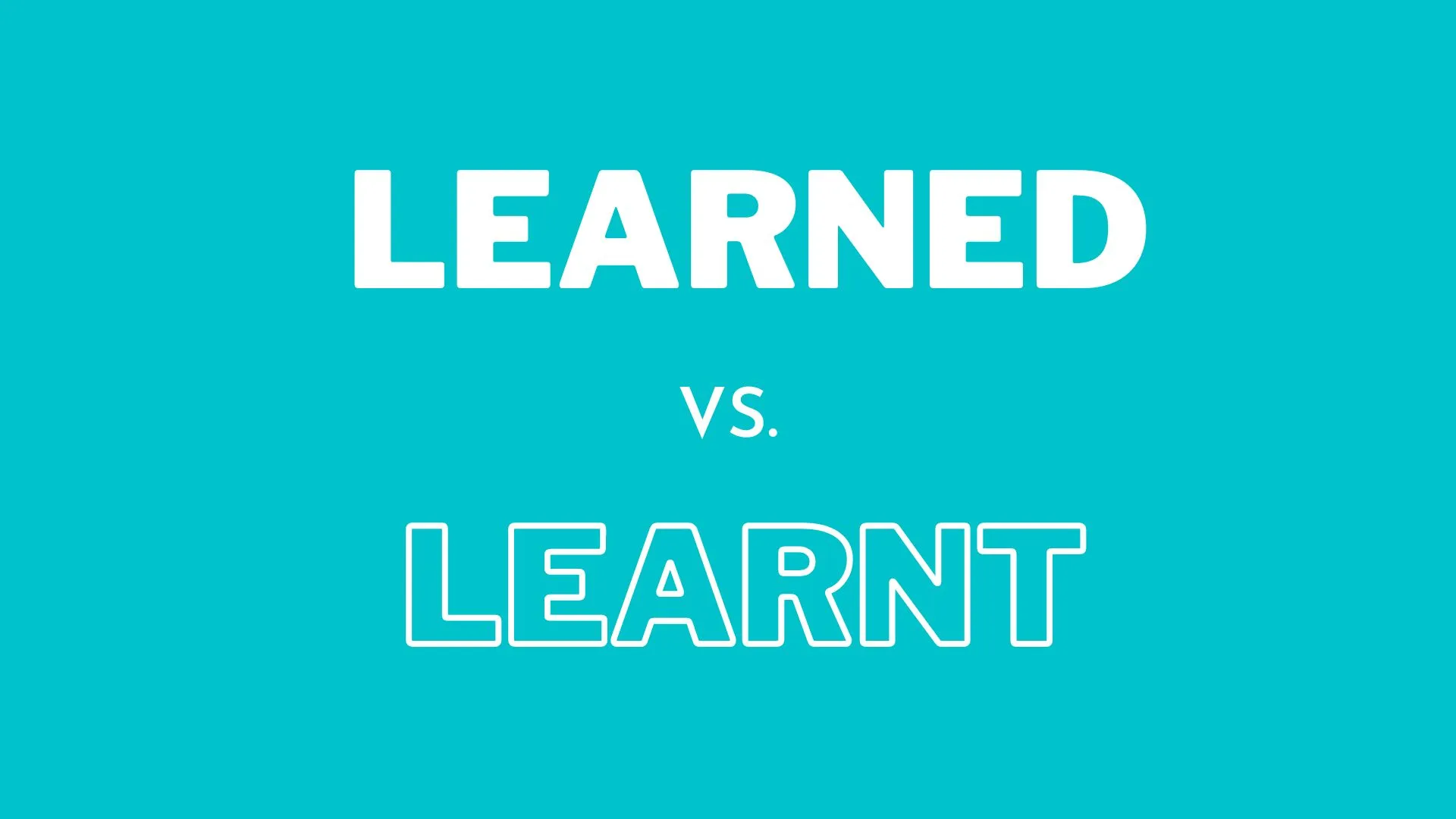

The word "learned" is an adjective derived from the verb "to learn." It first appeared in English in the late 14th century and has been used ever since. The word "learnt" is a variation of "learned" that appeared in the early 16th century.
The words “learned” and “learnt” can be confusing to anyone trying to master English grammar. However, the two words mean the same thing. The key difference in usage is dependent on the type of English spoken:
There is one exception to the rule when “learned” and “learnt” cannot be used in the same manner. We're going to explain the key times when to use “learned” and “learnt,” plus the one exception to the rule below.
|
|
Learned |
Learnt |
|
Usage |
Both “learned” and “learnt” are used as the past tense and past participle of the verb “to learn.” Both words have the same meaning. Examples: “I learned a new word today” or “I learnt a new word today.” |
|
|
The accepted spelling in Canada and the United States. |
The accepted spelling in British English. |
|
|
It can also be used as an adjective to describe a person with extensive knowledge or education. Example: “Joe was a very learned person.” In this case, the word “learned” is pronounced as two syllables: LER-ned. |
||
English can be a tricky language. Because there are different variations of the language, some words may be spelled differently and have the same meaning. The words “learned” and “learnt” are great examples.
Both “learned” and “learnt” are perfectly acceptable and can typically be used interchangeably.
However, there is one instance where “learned” is the only correct choice. That instance is when you are using “learned” as an adjective.
“Learned” can be used to describe a person who is highly knowledgeable or has an extensive education. In this case, learned would be the appropriate choice, and it would be pronounced as two syllables (LER-ned).
Using “learned” and “learnt” is a part of daily conversation. Mastering English as a second language requires you to learn these critical differences in the way words are said around the world. Examples of these two words in context include:
However, the one time that you cannot use these two words interchangeably, include:
In general, when you’re writing or speaking to someone in English, you want to use one form of English. For example, you don’t want to mix American and British English spellings together when writing to avoid confusion.
Understanding the difference between "learned" and "learnt" is important for effective communication in English. It is essential to remember that "learned" is the American or Canadian English spelling of the word, and "learnt" is the British English spelling. Both spellings are accepted in these three countries, and both words mean the same, but the one exception to the rule is when you say someone is learned in the adjective form.
Data: October 21st, 2022
Rob